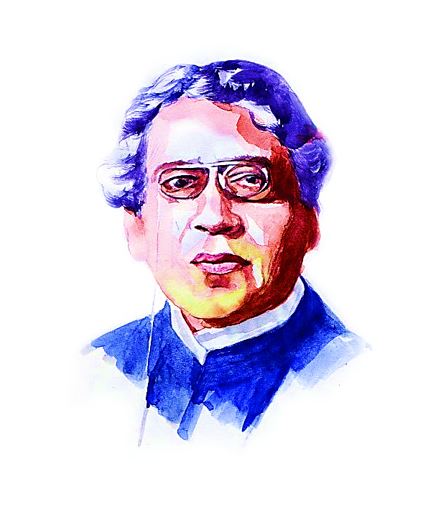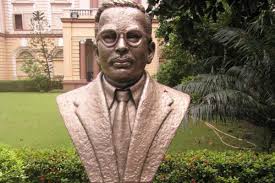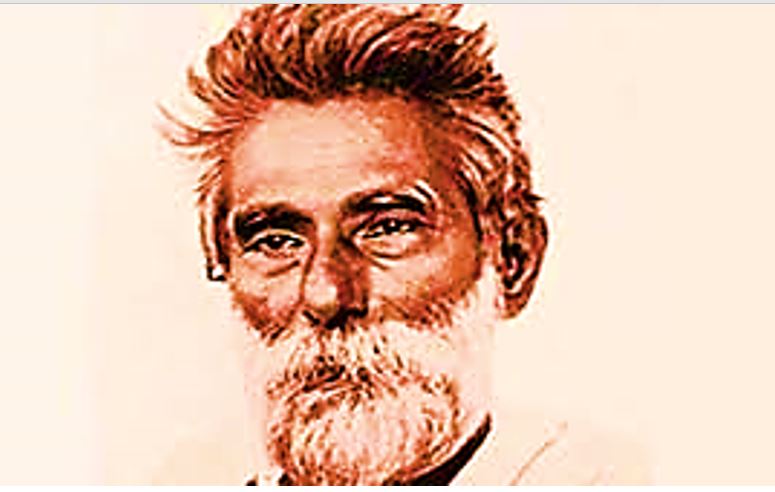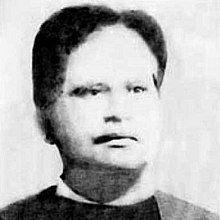গুরুদেব রবীন্দ্রনাথ ঠাকুর জালিয়ানওয়ালা বাগের হত্যাকাণ্ডের প্রতিবাদে ‘নাইটহুড’ সম্মাননা প্রত্যাখ্যান করে ভাইসরয় চেমসফোর্ডকে চিঠি প্রেরণ করেন ৩১ মে, ১৯১৯ (সূত্রঃ- রবীন্দ্র জীবনপ্রবাহ -পত্রলেখা)
জালিয়ানওয়ালা বাগের হত্যাকাণ্ডের পরিপ্রেক্ষিতে রবীন্দ্রনাথ ঠাকুরের নাইটহুড খেতাব প্রত্যাখ্যান শুধু বৃটিশ শাসকদের বিরুদ্ধেই ক্ষোভের বহিঃপ্রকাশ ছিল তা নয়, একই সাথে তা ছিল ভারতের জাতীয়তাবাদী দলের নেতাদের ইংরেজ দালালির বিরুদ্ধে প্রতিবাদ। ১৩ই এপ্রিল জালিয়ানওয়ালাবাগের হত্যাকান্ড ঘটল। কিন্তু পাঞ্জাবের এই নৃশংস হত্যাকান্ডে তিনি অত্যন্ত পীড়িত ও ক্ষুব্ধ হয়েছিলেন। রবীন্দ্রনাথের অত্যন্ত ঘনিষ্ঠ প্রশান্তচন্দ্র মহালনবীশ জানাচ্ছেন যে তিনি এতটাই বিচলিত ছিলেন যে সি এফ এন্ড্রুজ মারফত গান্ধীর কাছে বার্তা পাঠান যাতে এই মর্মে মহাত্মা যেন কোনো বিবৃতি দেন। ‘কবি..এন্ড্রুজ সাহেবকে ডেকে পাঠালেন। পাঞ্জাবে যে কান্ড ঘটছে তা নিয়ে সমস্ত ভারতবর্ষের মধ্যে একজন লোকও প্রতিবাদ করবেনা এটা কবির কাছে অসহ্য। – – – – – কবির ইচ্ছা যে মহাত্মাজী যদি রাজী থাকেন তবে মহাত্মাজি আর কবি দুজনে দিল্লিতে গিয়ে মিলবেন। সেখান থেকে দুজনে এক সঙ্গে পাঞ্জাবে প্রবেশ করার চেষ্টা করবেন। ওঁদের দুজনকেই তাহলে (পাঞ্জাবে যেহেতু তখন বাইরের লোক প্রবেশ নিষেধ) গ্রেপ্তার করতে হবে। এই হবে ওদের প্রতিবাদ।’ যাই হোক্ অস্থির চিত্তে গান্ধীজীর উত্তরের জন্য অপেক্ষার অবসান ঘটিয়ে এন্ড্রুজ যখন ফিরলেন, তখন সাহেব বললেন যে গান্ধীজি এখন পাঞ্জাবে যেতে রাজী নন – I do not want to embarrass the Government now — শুনে কবি একেবারে চুপ হয়ে গেলেন।’ – – – – – -এর পর স্তম্ভিত রবীন্দ্রনাথ ছুটেছিলেন বাংলার নেতা সি আর দাসের দরজায়। তাঁর সাথে কথপোকথনটিও দেখা যাক্। কবি মহালনবীশকে বলছেন —- “মহাত্মাজী রাজী হলেননা পাঞ্জাবে যেতে। কাল তাই নিজেই গিয়েছিলুম চিত্তরঞ্জনের কাছে। বললুম যে, এই সময় সমস্ত দেশ মুখ বন্ধ করে বসে থাকবে এ অসহ্য। তোমরা প্রতিবাদ সভা ডাকো। আমি নিজেই বলছি যে আমি সভাপতি হব। চিত্ত একটু ভেবে বললে, বেশ। আর কে বক্তৃতা দেবে? আমি বললুম সে তোমরা ঠিক করো। চিত্ত আরেকটু ভাবলে —- বললে, আপনি যদি সভাপতি হন্, তার পর আর কারুর বক্তৃতা দেওয়ার দরকার হয়না। আপনি একা বললেই যথেষ্ট। আমি বললুম, তাই হবে। এবার তবে সভা ডাকো। তখন চিত্ত বললে, আপনি একা যখন বক্তৃতা দেবেন, আপনিই সভাপতি তখন সবচেয়ে ভালো হয় শুধু আপনার নামেই সভা ডাকা। বুঝলুম ওদের দিয়ে কিছু হবেনা। – – – – – আর আমি একাই যদি কিছু করি তবে লোক জড়ো করার দরকার কি? আমার নিজের কথা নিজের মত করে বলাই ভালো।” ৩০ মে সারা রাত জেগে কবি নিজের নাইটহুড প্রত্যাখ্যানের চিঠি লিখে ৩১ মে ভোরবেলা তার করে পাঠালেন বড়লাটের কাছে। নাইটহুড প্রত্যাখ্যান-পত্রে লর্ড চেমসফোর্ডকে রবীন্দ্রনাথ লিখেছিলেন, “আমার এই প্রতিবাদ আমার আতঙ্কিত দেশবাসীর মৌনযন্ত্রণার অভিব্যক্তি।” ২০ জুন কবি উত্তর পেলেন ব্রিটিশ সরকারের তরফ থেকে “… His Exellency the Viceroy is unable himself to relive you of your title of ‘KINGHTHOOD’…”
মহালনবীশ জানাচ্ছেন ৩১ মে দুপুর থেকে শুরু হল তার ‘লিপিকা’ রচনার কাজ। জালিয়ানওয়ালাবাগের শ্মশান থেকে ‘জাতির পিতা’ ফিরে এসেছেন দেশমাতাকে পুড়িয়ে আর কবি লিখছেন ‘লিপিকা’-র প্রথম রচনা :
শ্মশান হতে বাপ ফিরে এল। ————————————————————————– তখন সাত বছরের ছেলেটি —– গা খোলা, গলায় সোনার তাবিজ —- একলা গলির উপরকার জানালার ধারে। কী ভাবছে তা সে আপনি জানে না। সকালে রৌদ্র সামনের বাড়ির নিম গাছটির আগডালে দেখা দিয়েছে; কাঁচাআমওয়ালা গলির মধ্যে এসে হাঁক দিয়ে ফিরে গেল। বাবা এসে খোকাকে কোলে নিলে; খোকা জিজ্ঞাসা করলে, “মা কোথায়।” বাবা উপরের দিকে মাথা তুলে বললে, “স্বর্গে।” – – – – – – – – – – – – – উলংগ গায়ে খোকা আকাশের দিকে তাকিয়ে। তার দিশাহারা মন কাকে জিজ্ঞাসা করছে, “কোথায় স্বর্গের রাস্তা।” আকাশে তার কোনো সাড়া নেই; কেবল তারায় তারায় বোবা অন্ধকারের চোখের জল। ————————————————————————- কী তীব্র যন্ত্রণা আর হতাশা যে তিনি বোধ করেছিলেন আমাদের তৎকালীন দেশবরেণ্য নেতৃত্ব সম্পর্কে এবং সে হতাশা যে কেবল সাময়িক নয় তা আমরা বুঝি, যখন দেখি যে এই ঘটনার বাইশ বছর পরেও, ৬ই জুলাই, ১৯৪১, প্রশান্ত মহালনবীশের এই লেখা তিনি নিজে স্বাক্ষর করে অনুমোদন করে দিয়ে যান (সূত্রঃ রবীন্দ্রনাথ : প্রশান্তচন্দ্র মহালনবীশ, আনন্দ প্রকাশনী)।
The letter written by Rabindranath Tagore to Lord Chelmsford, the British viceroy, repudiating his Knighthood in protest for Jalianwalla Bagh mass killing. Your Excellency,
The enormity of the measures taken by the Government in the Punjab for quelling some local disturbances has, with a rude shock, revealed to our minds the helplessness of our position as British subjects in India. The disproportionate severity of the punishments inflicted upon the unfortunate people and the methods of carrying them out, we are convinced, are without parallel in the history of civilised governments, barring some conspicuous exceptions, recent and remote.
Considering that such treatment has been meted out to a population, disarmed and resourceless, by a power which has the most terribly efficient organisation for destruction of human lives, we must strongly assert that it can claim no political expediency, far less moral justification. The accounts of the insults and sufferings by our brothers in Punjab have trickled through the gagged silence, reaching every corner of India, and the universal agony of indignation roused in the hearts of our people has been ignored by our rulers- possibly congratulating themselves for imparting what they imagine as salutary lessons. This callousness has been praised by most of the Anglo-Indian papers, which have in some cases gone to the brutal length of making fun of our sufferings, without receiving the least check from the same authority, relentlessly careful in something every cry of pain of judgment from the organs representing the sufferers. Knowing that our appeals have been in vain and that the passion of vengeance is building the noble vision of statesmanship in out Government, which could so easily afford to be magnanimous, as befitting its physical strength and normal tradition, the very least that I can do for my country is to take all consequences upon myself in giving voice to the protest of the millions of my countrymen, surprised into a dumb anguish of terror. The time has come when badges of honour make our shame glaring in the incongruous context of humiliation, and I for my part, wish to stand, shorn, of all special distinctions, by the side of those of my countrymen who, for their so called insignificance, are liable to suffer degradation not fit for human beings. And these are the reasons which have compelled me to ask Your Excellency, with due reference and regret, to relieve me of my title of knighthood, which I had the honour to accept from His Majesty the King at the hands of your predecessor, for whose nobleness of heart I still entertain great admiration. Yours faithfully, Rabindranath Tagore




